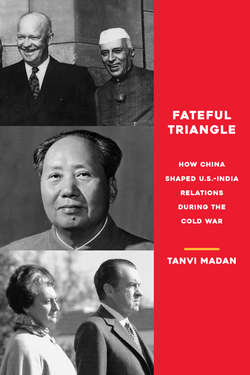Читать книгу Fateful Triangle - Tanvi Madan - Страница 35
На сайте Литреса книга снята с продажи.
The Development Race
ОглавлениеNehru’s 1949 visit had damaged American hopes for India vis-à-vis China; his 1956 visit, on the other hand, helped consolidate the view in the administration that India, along with China, was “the leading political contender” in Asia. Concern about Chinese economic progress was evident in NSC 5701, the administration’s revised statement of its South Asia policy in early 1957. It emphasized that it was critical for India’s momentum to be maintained. Indian development had domestic and international implications—an Indian loss in the competition with China would adversely affect the free world cause across Asia and Africa.63 While the concept of a Sino-Indian race was not new, this was the first time it was mentioned in an official document and linked with American security.64
Nehru sometimes criticized those who compared China and India and denied that there was a race between the two countries.65 He, however, frequently made such comparisons himself. While noting the two countries were at similar stages of development and had some similar characteristics, he contrasted Beijing’s autocratic means with Delhi’s democratic ones. Nehru publicly acknowledged the “great test”: if his government did not “deliver the goods … democracy [would] then be in peril.… Then people may think of totalitarian methods.”66
In early 1957, with the Indian economy facing “a good deal of trouble,”67 policymakers worried that they were not delivering. Some reversals for the Congress Party in the spring 1957 national and state elections suggested that voters felt the same way. Nehru feared that if the party failed to deliver, it would be disastrous for the country because there would be a “vacuum” that other democratic parties were incapable of filling.68
In one state at least, Kerala, communists had filled the vacuum. They formed the first democratically elected purely communist government in the world. Nehru blamed his party’s lack of delivery, and, like some in the US, worried that the communists might demonstrate a successful alternative.69 Communist reaction abroad only exacerbated Indian policymakers’ concern. It ranged from cautious approval to triumphal predictions that Indian communists could expand their foothold.70
Confronted with continued criticism and charges that Indian development paled in comparison with that of China, Nehru tried to create a sense of momentum in India. He directed officials to make a greater effort to publicize the government’s development plans.71
